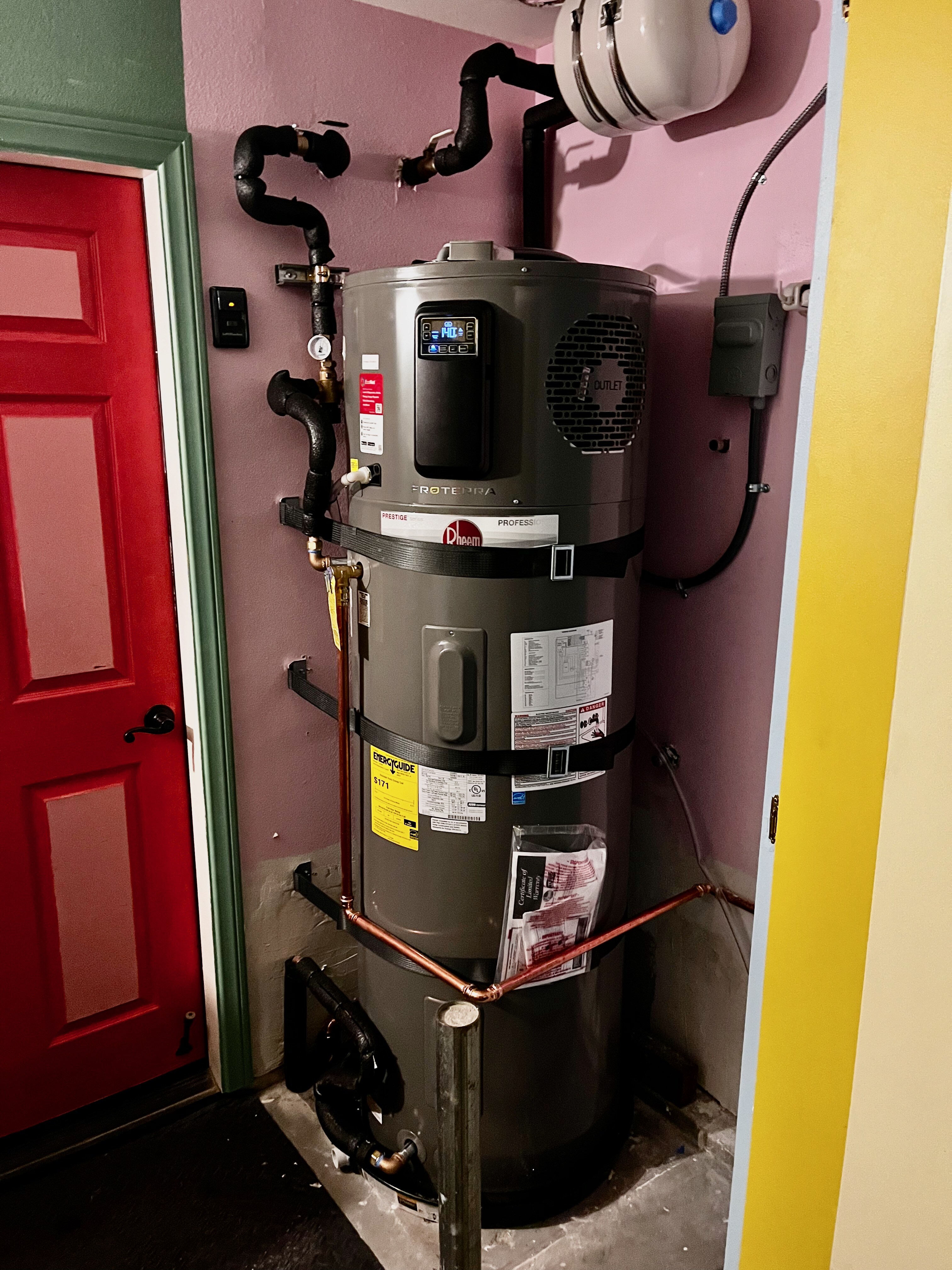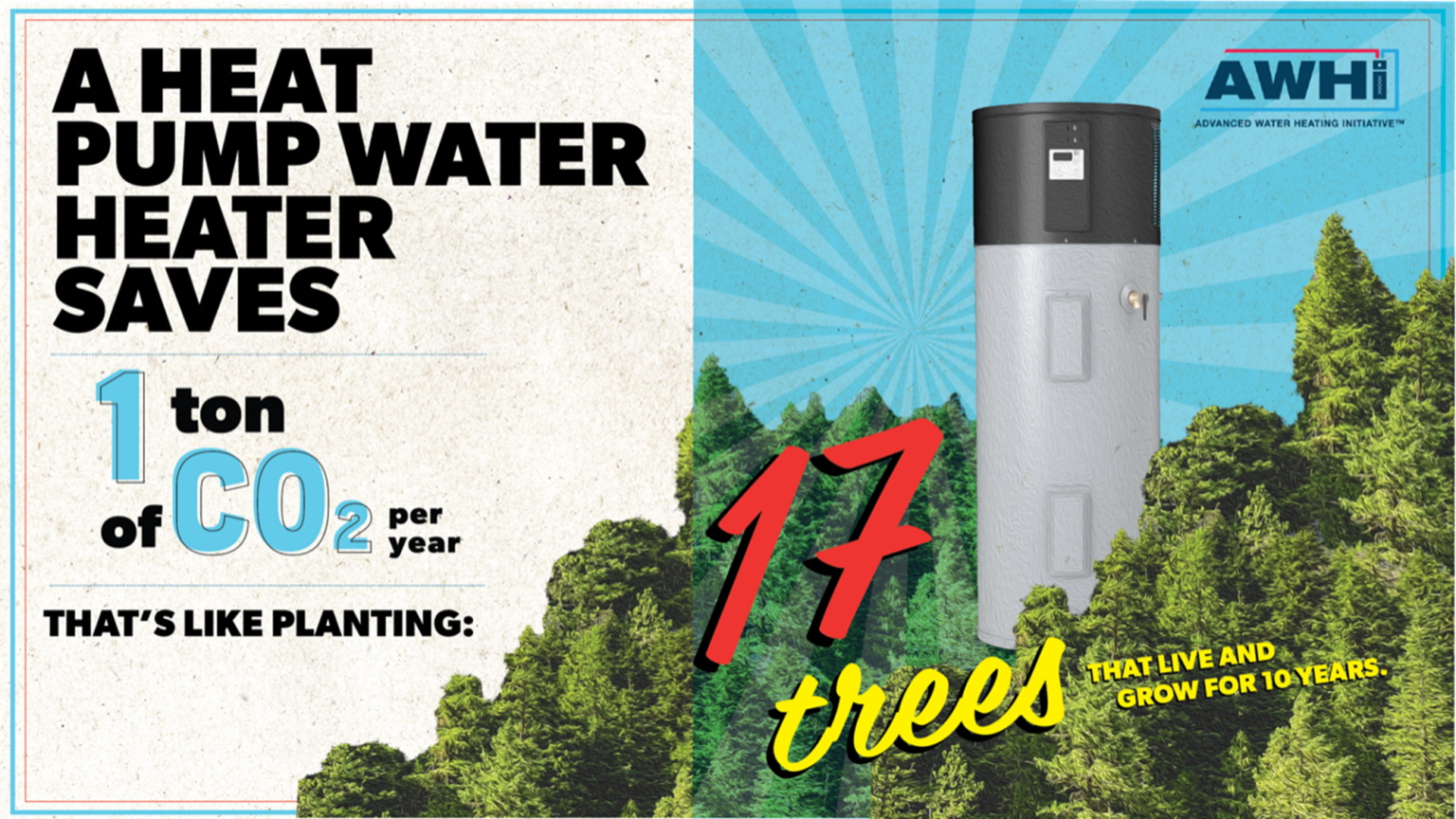Which Type of Water Heater Should I Buy?
Updated August 2024
Water heaters are critical to a functioning home. They take up about 20% of your energy bill and generally run 24 hours a day. Most water heaters in the United States and worldwide fall into three main categories: gas-powered, electric-powered, and hybrid heat pumps. (For more details, see our Complete Guide to Heat Pump Water Heaters.)
Which Water Heater Is Right for You?
When it comes to keeping your home running smoothly, a reliable water heater is essential. It’s not just about comfort — water heating accounts for about 20% of your energy bill and operates around the clock. If you’re in the market for a new water heater, you’ll find three main options: electric-powered, gas-powered, and hybrid heat pump models. Let’s dive into what each type offers and how to choose the best one for your home.
Electric Water Heaters: The Popular Choice
Electric water heaters are the most widely used across the globe, and for good reason. They heat water using electric elements inside the tank, making them highly efficient—especially when compared to gas heaters, which lose energy through exhaust fumes. Some modern electric models even come with Wi-Fi connectivity, allowing you to control them from your smartphone. Plus, if your electricity is sourced from renewables, electric heaters can significantly reduce your carbon footprint.
Why Choose an Electric Water Heater?
- No venting required: Unlike gas heaters, electric models don’t need to vent toxic fumes, making them easier and safer to install.
- Healthier home environment: Electric water heaters don’t produce pollutants like carbon monoxide, formaldehyde, or fine particulates, which can impact indoor and outdoor air quality.
- Ease of installation: They’re versatile and often more affordable to install compared to gas heaters.
Gas Water Heaters: Reliable but Risky
Gas water heaters are still common in the U.S., but they come with significant drawbacks. They rely on fossil fuels, which means continuing a dependence on a volatile energy source. Additionally, gas prices fluctuate due to geopolitical tensions, and some cities are starting to phase out gas connections altogether. Gas heaters also emit pollutants that harm air quality and contribute to climate change.
Pros of Gas Water Heaters
- Works during power outages: Gas heaters can keep running even when the power is out, thanks to their insulated tanks that retain heat.
- Potential cost savings: Depending on gas prices in your area, operating costs may be lower than electric heaters.
However, gas heaters are less efficient overall, and their environmental impact is hard to ignore.
Heat Pump Water Heaters: The Best of Both Worlds
If you’re looking for the most energy-efficient option, hybrid heat pump water heaters are the way to go. These innovative systems combine heat pump technology with electric heating elements, using two to three times less energy than traditional heaters. The result? Significant savings on your energy bills — potentially hundreds of dollars annually for a family of four.
Why Go Hybrid?
- Incredible efficiency: Hybrid heat pump water heaters can save hundreds of dollars each year on energy costs.
- Environmental impact: These heaters only produce cold air and a small amount of condensed water as byproducts, making them environmentally friendly.
- Financial incentives: Under the Inflation Reduction Act, you can get a 30% tax credit (up to $2,000) on the purchase and installation of a hybrid heat pump water heater, making it an even smarter investment.
Installation Made Easy
While DIY might seem tempting, installing a water heater is best left to the pros. At QuitCarbon, we can connect you with trusted contractors who ensure the job is done right.




